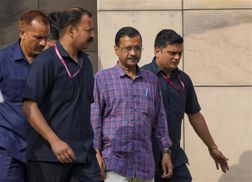
A 100 days after Prime Minister Narendra Modi sprung the GST on India, Rajeev Jayaswal examines whether his promises have been met. After the launch of GST, the PM had told the nation that the new regime would | Curb black money by doing away with ‘kaccha’ bills n Benefit consumers by removing cascading effect of taxes | Create conducive business environment for small and medium enterprises | Check tax terrorism through digital interface. The ground reality is, however, different.
‘Kaccha’ vs ‘pakka’ bills
Madhvi Singh (name changed) was surprised when the counter-clerk at a sanitaryware store in Chandigarh refused to give her a proper bill for accessories worth Rs 9,000 she had purchased to renovate her bathroom. She insisted to get a ‘pakka’ bill. The clerk was smart. He asked her to pay an additional Rs 2,520 on account of the GST. The tax of 28 per cent outweighed her conscience. She quietly went to a nearby ATM, withdrew money and paid cash.
Theoretically, PM Modi is right. Issuing a ‘pakka’ invoice is a compulsion at every stage of value addition to avail input tax credit. But, what if one is not interested in input tax credit and makes quick bucks by transacting outside the GST system? Interestingly, scores of manufacturers and vendors are indulging in profiteering by keeping themselves outside the GST value-chain. This also saves them from the onerous compliance burden associated with the new taxation system. So far as consumers are concerned, like Madhvi they don’t mind a ‘kaccha’ bill to save on taxes.
Gullible consumers
Last week, PM Modi hailed the GST regime as “consumer-friendly”, which also appears to be a myth at the ground level. It is true that the GST has subsumed about one-and-a-half dozen central and state levies, but it has also given birth to seven tax slabs and over one-and-a-half dozen cesses.
Although, it does prevent cascading effect of taxes, traders have no incentive to pass its benefit to the customer. Ideally, most of goods and services should be cheaper by 5 to 10 per cent after July 1, but nothing that sort has happened. As manufacturers and traders do not get input tax credit instantly, they have no intention to pass the benefit to consumers in advance.
Besides, several cases have been reported where traders are charging tax on the maximum retail price (MRP) and duping gullible consumers, who are ignorant that the MRP is inclusive of the GST.
PM Modi is absolutely right when he said that the scrapping of check-posts at state borders have significantly reduced transportation time and cost. But, the benefit is cornered by the transporter and the trader.
Survival of the fittest
The GST has increased the tax burden and compliance costs of small traders and manufacturers who used to enjoy greater threshold limits during the earlier tax regime. Although, the GST system has raised the threshold limit in case of services from Rs 10 lakh to Rs 20 lakh, the registration is a must for a service provider doing inter-state business, irrespective of the turnover. A similar situation is faced by small exporters. Their working capital is stuck because of the delays in processing tax refunds under the new regime. They are fast losing their competitive edge in the international markets.
Trust deficit & tax terrorism
Congress vice-president Rahul Gandhi has recently termed the GST as the ‘Gabbar Singh Tax’, knowing well that the idea of this tax was born during the Congress regime. Being a political person, he would exploit the popular sentiment against the Modi government that it does not trust citizens, particularly businessmen. The genesis of current tax terrorism has its roots in this environment of distrust. Gandhi rightly sums up that “trust goes two ways - the government does not believe in its people and now after three years, the people have withdrawn their trust in this government”.



























